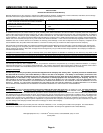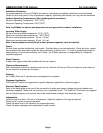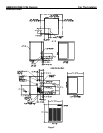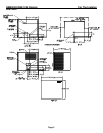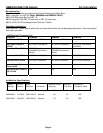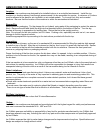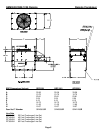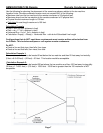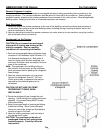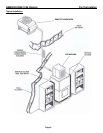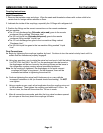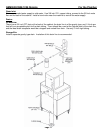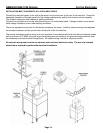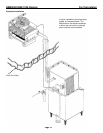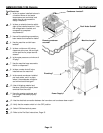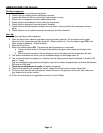
GEM0650/0956/1256 Remote For the Installer
Remote Condenser Location:
Limited to a 25 foot or a 40 foot length of precharged refrigerant tubing connecting the ice machine to the
remote condenser. The remote condenser must be above or level with the ice machine. Select the best
available location, protecting the remote condenser from extremes of dirt, dust and sun. Meet all applicable
building codes. Usually the services of a licensed electrician are required.
Roof Attachment:
1. Install and attach the remote condenser to the roof of the building, using the methods and practices of
construction that conform to the local building codes, including having a roofing contractor secure the
remote condenser to the roof.
2. Have an electrician connect the remote condenser fan motor wires to the ice machine, using the junction
box at the back of the ice machine.
Precharged Line Set Routing
CAUTION: Do not connect the precharged
tubing until all routing and forming of the
tubing is complete. See the coupling
instructions for connecting information.
Page 8
1. Each set of precharged tubing refrigerant lines
consists of a 3/8 diameter liquid line and a 1/2
inch diameter discharge line. Both ends of
each line have quick connect couplings, one
end has a Schrader valve connection, that end
goes to the condenser.
Note: The openings in the building ceiling or
wall, listed in the next step, are the minimum
sizes recommended for passing the refrigerant
lines through.
2. Have the roofing contractor cut a minimum
hole for the refrigerant lines of 1.750 inch.
Check local codes, a separate hole may be
required for the electrical power to the
condenser.
CAUTION: DO NOT KINK OR CRIMP
REFRIGERANT TUBING WHEN
INSTALLING IT.
3. Route the refrigerant lines through the roof
opening. Follow straight line routing whenever
possible. Any excess tubing MUST remain
within the building.
4. Spiral the excess length of precharged tubing
inside the building. Use a horizontal spiral
(does not need to be as tight as illustrated) to
avoid any traps in the lines.
5. Have the roofing contractor seal the holes in
the roof per local codes.
CAUTION: The couplings on the sets of
precharged lines are self sealing when
installed properly. Carefully follow the
instructions:



